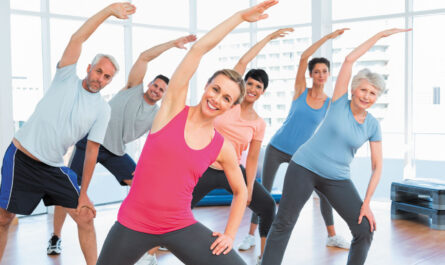In today’s digitally connected world, social media has become an integral part of daily life, influencing how we communicate, learn, and form opinions. With over 4.7 billion active social media users globally, platforms like Instagram, Facebook, TikTok, and Snapchat offer an unprecedented level of connection and exposure. However, while social media brings benefits such as the ability to stay connected with friends, share experiences, and gain information, it also presents significant challenges, particularly for mental health and body image. The constant exposure to curated images and edited portrayals of beauty can deeply affect how individuals perceive their own bodies, leading to body dissatisfaction, low self-esteem, and even disordered eating.
Understanding the impact of social media on body image is crucial in today’s society. This article explores the psychological effects social media has on body image, how these platforms perpetuate unrealistic beauty standards, and practical steps individuals can take to foster a healthier relationship with the digital world.
The Link Between Social Media and Body Image
Body image refers to how individuals perceive and feel about their physical appearance. It is shaped by various factors, including personal experiences, societal standards, and media influences. Over the years, social media has become one of the most influential forces in shaping body image perceptions. On platforms where visual content is king, people are constantly bombarded with images that often depict unattainable standards of beauty.
Unrealistic Beauty Standards:
One of the primary ways social media affects body image is by perpetuating unrealistic beauty standards. In many cases, photos shared on social media are carefully curated, edited, and filtered to highlight a specific aesthetic or appearance. These images often present an idealized version of beauty that may not reflect reality. For example, influencers and celebrities often use filters, retouching apps, and makeup to create flawless looks, which can leave viewers feeling inadequate if they do not measure up to these digitally-enhanced portrayals.
Studies have shown that individuals, particularly young people, are more likely to compare themselves to others they see on social media. The result is often a sense of dissatisfaction with one’s own body when it fails to conform to the idealized images presented online. According to a study published in Body Image, exposure to idealized images on social media has been linked to increased body dissatisfaction, especially among women. These comparisons can lead to a constant desire for physical perfection, fueling negative self-talk and poor body image.
The Rise of Filter Culture:
Filters and photo-editing apps have transformed how people present themselves online. While these tools can be fun and creative, they have also contributed to the creation of a “perfect” image that is far removed from reality. Filters that smooth out skin, slim down faces, and enhance facial features can lead to an exaggerated sense of beauty that distorts perceptions of normal human appearance. Many users, especially teens, begin to feel the pressure to apply these filters to their photos before posting them, which can result in a warped sense of self-worth.
The effects of filter culture can be particularly harmful to young people, who may already be vulnerable to external pressures about their appearance. They may come to believe that their unfiltered, natural selves are inadequate, further exacerbating body image issues.
Psychological Effects of Social Media on Body Image
The constant exposure to idealized beauty standards on social media can have severe psychological effects on users. For many, these effects manifest in the form of body dissatisfaction, depression, anxiety, and low self-esteem.
Body Dissatisfaction and Comparison:
Social media fosters a culture of comparison. Users frequently compare their appearance, lifestyle, and experiences to those of others, which can result in feelings of inadequacy or inferiority. This is particularly true when users encounter posts that showcase seemingly perfect bodies or extravagant lifestyles. When comparing themselves to others, individuals may become hypercritical of their own bodies, leading to dissatisfaction with their appearance and an intense desire to change their physical features.
Low Self-Esteem:
Repeated exposure to idealized images and the pressure to meet beauty standards can erode self-esteem. For many, social media can serve as a reminder of perceived physical flaws or qualities they believe are undesirable. Over time, these feelings can take a toll on self-worth, making it difficult for individuals to appreciate their natural appearance. A person’s value begins to feel tied to their physical image rather than their intrinsic qualities, such as personality, intelligence, or kindness.
Mental Health Concerns:
The impact of social media on body image is not just limited to body dissatisfaction and low self-esteem. Studies have linked heavy social media use to mental health issues such as anxiety, depression, and even eating disorders. In particular, the constant exposure to unrealistic body ideals can trigger disordered eating behaviors, including restrictive dieting, excessive exercising, or extreme weight loss attempts. Research published in JAMA Psychiatry has found that young women who spend more time on platforms like Instagram are more likely to experience symptoms of anxiety and depression, particularly in relation to their body image.
How Social Media Perpetuates Unrealistic Beauty Ideals
The problem with social media and body image isn’t just that it showcases edited or curated content, but also that it often reinforces narrow definitions of beauty. Beauty standards vary widely across cultures and eras, but in modern digital spaces, certain ideals have become almost universal.
The Influence of Influencers and Celebrities:
Social media influencers and celebrities often set the tone for what is considered “beautiful” or “desirable.” Many influencers have become the epitome of social media beauty, with their perfectly styled appearances, sculpted physiques, and flawless makeup. These influencers frequently gain endorsement deals, product sponsorships, and millions of followers, further promoting the idea that their beauty is the standard to strive for. However, behind the carefully curated posts lies the reality of professional styling, photoshopped images, and extensive filtering that the average person cannot replicate.
While some influencers are attempting to break away from these ideals by promoting body positivity and diversity, the prevalence of “picture-perfect” images on social media continues to dominate the narrative. This pressure can cause individuals to feel as though they are failing to meet societal expectations, leading to negative body image.
The “Fitspiration” Culture:
Another trend contributing to body dissatisfaction is the rise of the “fitspiration” (fitness inspiration) culture on social media. While promoting fitness and health is generally a positive message, many posts and accounts often blur the line between health and appearance. Images of toned, muscular bodies are frequently accompanied by phrases like “no excuses” or “strong is the new sexy,” which can pressure individuals into believing that they must attain a certain body type in order to be considered healthy or attractive. For some, this can lead to unhealthy exercise habits, over-exercising, or body-shaming themselves for not achieving a particular physique.
Cultivating a Healthier Online Experience
While social media can have negative effects on body image, there are ways to mitigate these impacts and foster a more positive online experience. Here are several strategies that individuals can use to cultivate a healthier relationship with social media and their body image:
- Curate Your Feed:
One of the most powerful tools in creating a healthier online experience is taking control of what you consume. Follow accounts that promote body positivity, diversity, and self-love. Seek out content that celebrates different body types, ethnicities, and gender identities. By diversifying the images and messages you encounter online, you can begin to challenge the narrow beauty standards often presented on social media. - Practice Mindful Social Media Consumption:
Rather than mindlessly scrolling through your social media feeds, try to be more mindful of how certain content makes you feel. If you encounter images or accounts that trigger negative thoughts or comparisons about your body, take a break from those platforms or unfollow those accounts. It’s essential to recognize when social media is affecting your mental health negatively and to make adjustments accordingly. - Limit Social Media Use:
Another effective way to protect your body image and mental health is by limiting the amount of time spent on social media. Spending excessive time scrolling through idealized images can exacerbate feelings of inadequacy. By setting boundaries for social media use—whether through screen time limits or designating specific times of day to engage—you can reduce the pressure to constantly compare yourself to others. - Promote Authenticity:
While filters and photo-editing tools are widely used, they can create unrealistic standards that negatively impact self-esteem. Instead of striving for perfection, embrace authenticity. Posting unfiltered and natural photos can help break down the myth of perfection and encourage others to do the same. Engaging with others who celebrate their true selves can foster a supportive and empowering community. - Focus on Non-Appearance-Based Achievements:
Social media often places heavy emphasis on appearance, but it’s important to remember that true self-worth goes beyond physical appearance. Shift the focus to other aspects of your identity, such as accomplishments, talents, relationships, and passions. By celebrating your non-physical attributes, you can foster a more well-rounded sense of self-worth that is not solely dependent on how you look. - Engage in Media Literacy:
Increasing media literacy is another vital tool in cultivating a healthier online experience. Understanding how images are edited, filtered, and curated can help you approach social media content with a critical eye. By recognizing that what you see online may not be an accurate representation of reality, you can avoid falling into the trap of comparison and body dissatisfaction. - Seek Professional Support if Needed:
If social media is having a significant impact on your body image or mental health, seeking professional help may be necessary. Therapists, counselors, and support groups can provide valuable tools and strategies for dealing with body image issues. Cognitive-behavioral therapy (CBT), in particular, has been shown to be effective in addressing body dissatisfaction and promoting healthier self-esteem.
Conclusion
Social media is a powerful tool that shapes the way we perceive ourselves and others. While it offers many benefits, it also has the potential to negatively impact body image, particularly when individuals are constantly exposed to curated, idealized portrayals of beauty. However, by understanding the psychological effects of social media, cultivating a mindful and intentional online experience, and promoting diversity and authenticity, individuals can protect their body image and mental health.
As we continue to navigate the digital world, it’s important to remember that social media should serve as a tool for connection, inspiration, and empowerment, not a platform for comparison and self-doubt. By taking proactive steps to engage with social media in a healthier way, we can foster a more positive relationship with our bodies and our digital selves.



